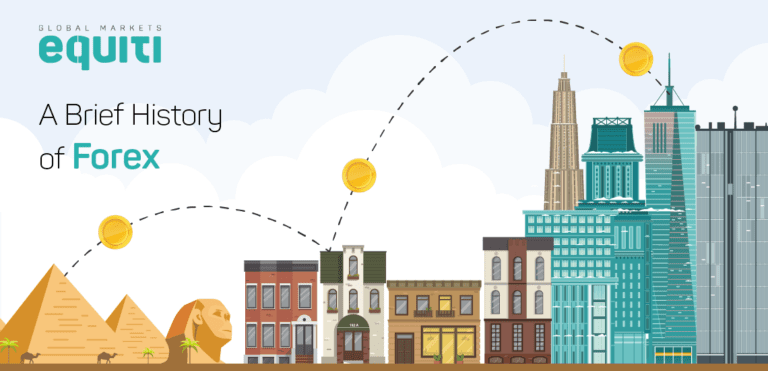History of Forex Trading

The origins of foreign exchange transactions trace back thousands of years ago, giving rise to a long history of forex trading. Here is a quick rundown of the significant turning points in forex trading history
Currency trading
It has been practiced since the dawn of civilization. It is thought that the first people to use bills of exchange for foreign exchange transactions were the Babylonians. Trade between many locations was made easier by the currency exchange.
Middle Ages
International trade and banking activity continued to expand during the Middle Ages. To promote trade, merchants from various nations exchanged money. The development of foreign exchange was further aided by the establishment of financial organizations and money changers.
Gold Standard
The gold standard system rose to popularity in the 19th century. In this system, the value of each currency was based on its gold reserves and was pegged to the price of gold. International trade was made easier and more stable under the gold standard.
The Bretton Woods System
It was developed in 1944 at a meeting of delegates from 44 countries in Bretton Woods, New Hampshire. The U.S. dollar served as the world’s reserve currency under the Bretton Woods Agreement, which also tied other currencies to it. Additionally, during this period, the World Bank and the International Monetary Fund (IMF) were established.
Failure of the Bretton Woods System
Starts in the 1970s, problems with the Bretton Woods system were caused by inflation and trade imbalances. The United States effectively abandoned the gold standard in 1971 when it stopped the dollar’s ability to be converted into gold. This resulted in a system of variable exchange rates, where currency values changed in response to market factors.
Globalization and technology advancements
In the latter half of the 20th century, there were substantial technological developments that transformed the currency market. Global traders now have electronic access to the FX market thanks to the development of computer networks and the internet. Due to this, internet currency trading flourished, and market participation rose.
Liberalization of the Foreign Exchange Market
In the 1990s, numerous nations began to liberalize their foreign exchange markets, enabling market forces to determine exchange rates. As a result, the forex market became more competitive and open to all participants.
Retail currency Trading
In the past, major financial institutions and businesses were the main participants in currency trading. Online trading platforms, however, made retail forex trading available to individual traders. Retail traders now have more options to engage in the FX market as a result.
With trillions of dollars moved every day, the FX market is currently the largest financial market on the planet. Forex trading has grown in popularity, with people, organizations, and even governments using it for a variety of reasons, such as speculation, hedging, and international trade.
